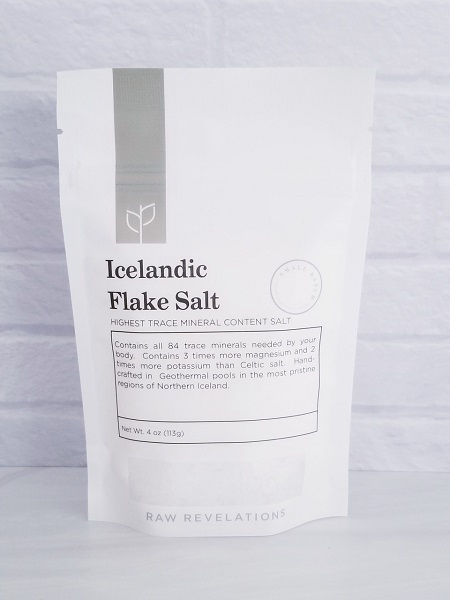
Where would we be without the wonderful flavor of salt? Well, we would actually cease to exist entirely.
Salt is well known to be a flavor enhancer in our favorite foods but it also plays a major role in our bodies and their functions. With enough salt deprivation, the human body can shut down completely, leading to drastic effects like coma and death.
This is because salt holds a host of responsibilities in our bodies, such as assisting in transmitting nerve impulses, contracting and relaxing muscles (yes, including our hearts and lungs), and ensuring that our fluid is balanced.
Fortunately, our diets have enough salt in them to keep us healthy. However, there are a number of salts that you can choose from to add to your diet (or to keep out of it!). Here are just four of the most common types of salt and their differences.
1. Sea Salt
The grains of sea salt are larger and less ground than you would imagine being in your salt shaker at home. Natural sea salt contains more than just sodium, though; it also has over 80 trace minerals, including iron, potassium, zinc, iodine, and chloride.
When you consume this type of salt regularly, you are providing your body with ample minerals, balancing your electrolytes, balancing your pH, and improving your circulation.
There are different types of sea salt as well, just one of which being Icelandic sea salt. We recommend the high-quality Icelandic Sea Salt flakes from Raw Revelations, as this product contains 84 trace minerals, is hand-crafted from Geothermal pools in Iceland, and holds two times the amount of calcium and three times the amount of magnesium as Celtic salt.
2. Kosher Salt
The origin of Kosher salt was for the Jewish religion, as it was used to remove blood from meat which would then make the meat Kosher. Kosher salt is extremely coarse and isn’t iodized, which makes it an excellent option to cure meat, brine, and cooking in general.
In just a teaspoon of Kosher salt, you’ll find 1,800 milligrams of sodium, which could be more ideal than refined table salt for those trying to watch their sodium intake.
3. Refined Table Salt
Refined table salt has received a reputation for being the least healthy option of all the salts. However, this isn’t because of what refined table salt is– this is in accordance with the quantity at which many people ingest it. In one teaspoon of refined table salt, there are 2,325 milligrams of sodium, so this may be a higher level of salt than some people would prefer.
It is also commonly found in processed foods and in abundance. The overuse of refined table salt can lead to issues like high blood pressure and kidney disease. However, it can be beneficial for some in moderation, especially those who have an iodine deficiency, as this type of salt has this essential nutrient.
4. Pink Himalayan Salt
Pink Himalayan salt, as you might have already gathered, originates from the Himalayas, which makes it one of the purest types of salt as it’s uncontaminated. Pink Himalayan salt has a significantly lower amount of sodium than table salt and is 16% trace minerals, like potassium, magnesium, and iron.
Plus, it affords consumers a stronger flavor than other forms of salt, especially table salt.
Take your health to the next level by upping your salt collection at home, especially with the Icelandic Sea Salt from Raw Revelations. They know what it takes to live your healthiest life and are proud to only provide you with products to help you get you there, including this type of salt. Browse their products today or email them any of your questions at [email protected].





